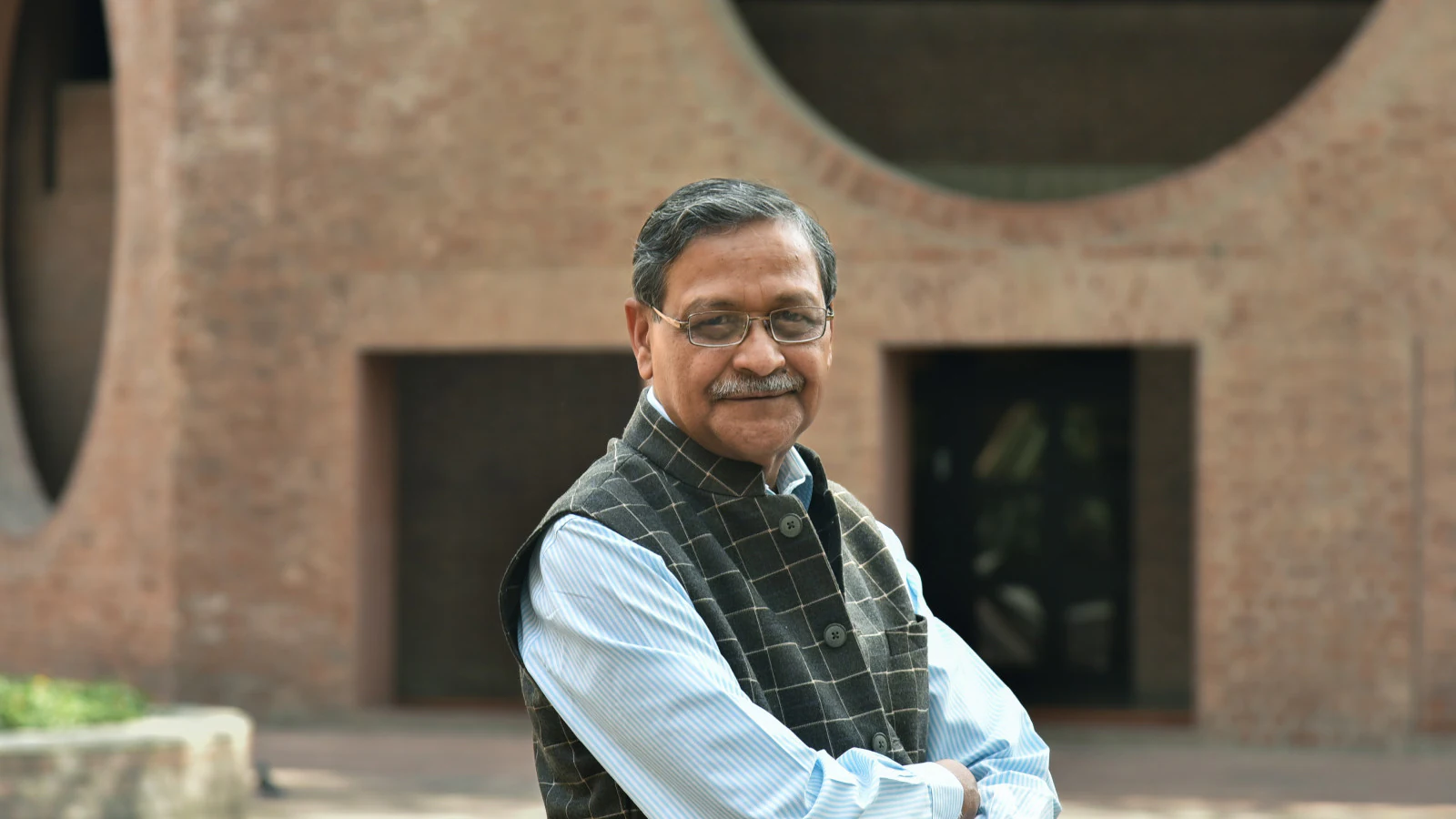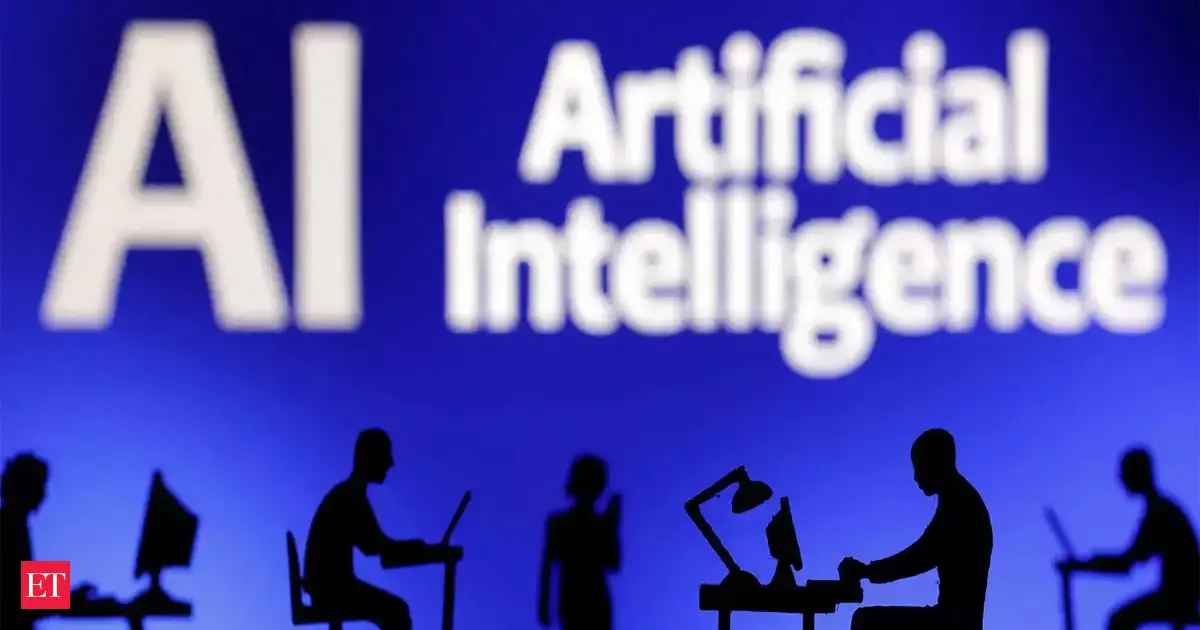Copyright news18

As artificial intelligence transforms the landscape of education, IIM Ahmedabad is reimagining how future leaders are trained. The institute is focusing on helping students not just use AI tools, but master how to apply them effectively in real-world decision-making. It has also introduced a two-year Blended MBA in Business Analytics and AI, the first-of-its-kind programme in India. “It is essential to understand how to use AI effectively and apply it in the best possible way in whichever field or function you are working,” said IIM Ahmedabad Director Professor Bharat Bhasker, adding that continuous learning and adaptability will define the next generation of management professionals. In an exclusive conversation with News18.com, Prof Bhasker also discusses the continuing relevance of MBA education in India, IIM Ahmedabad’s approach to AI in classrooms, financial accessibility for students and the institute’s vision behind its new Dubai campus. Here are the edited excerpts of the interview: Q: How relevant is an MBA in today’s time, especially when fees are rising and technology is reshaping industries? Prof Bhasker: It is a big question. The MBA is not just a degree; it is about developing leadership potential. You will always need leaders, people who can lead the pack. That is where we come in. In India, a country of 1.4 billion people, leadership is required not only in technology or corporate sectors but also in social and administrative fields. We produce leaders across all walks of life, including bureaucracy. So, the relevance of MBA education in India is not lost. It may be less relevant in countries that focus only on technology and corporate leadership, but our goal is broader. Q: The cost of MBA education is often seen as a deterrent. How is IIM Ahmedabad addressing this? Prof Bhasker: Yes, the cost of education is very high. We are a non-government-supported institute, and we have to pay for all the operational expenses, whatever goes around us. We have been trying to make it easier for students and make education more affordable. One way is through bank loans; nobody will be denied education due to the lack of money. Second, we also ensure that scholarships are given. Today, more than 40 percent of students get some kind of financial aid in one form or another. About 20 percent of them get more than half or full tuition support, and around 8 to 10 percent are studying here fully free of cost. We are also trying to get more money from the endowment fund, from our successful alumni, to help fund the education of future graduates. My target is that in the next three to four years, we will make at least 40 percent of students study for half the fee or full tuition. Q: Many institutes are debating whether to regulate or embrace AI in classrooms. What is IIM Ahmedabad’s approach? Prof Bhasker: We are experimenting with AI, not restricting it. Regulating or banning AI is not a solution because students will eventually use it in their work environments.Our classroom model is built around case discussions, decision-making, and peer interaction, which are things AI cannot replace. While AI can provide answers, what matters is how students arrive at decisions. Teachers must evolve their approach to engage students in analytical discussions and critical thinking, beyond what AI can offer. Q: IIM Ahmedabad recently completed placements. How did it go this year? Prof Bhasker: We achieved 100 percent placement in record time, as usual. Our students were placed in the clusters of their choice. Being one of the top institutes, we rarely face placement issues. Even during market slowdowns, IIM Ahmedabad remains among the first choices for recruiters. Q: In an AI-driven era, how can young professionals future-proof their careers? Prof Bhasker: Be prepared to learn how AI will be utilised. Today’s generation must continuously learn and stay on their toes. Some AI courses that you study today may become obsolete within eight months, as AI tools themselves evolve rapidly. Therefore, there is no alternative to continuous learning. It is essential to understand how to use AI effectively and apply it in the best possible way in whichever field or function you are working. Q: There’s often debate over CAT’s role as a single gateway to top B-schools. Do you believe it still serves as the best metric for evaluating potential? Prof Bhasker: We do not evaluate potential based on the CAT alone. The CAT is only a platform that reflects a certain level of aptitude and analytical ability. Based on those results, we create a large pool of eligible candidates. Within that pool, we look for specific characteristics that define future leaders, qualities that can be developed and refined during their time here. Therefore, CAT should not be treated as the sole criterion of merit. It is not about being ranked first or second. If a candidate is within the top five or ten per cent, that is good enough. From there, we focus on identifying and matching individuals with the right management personalities and leadership traits to train them as effective leaders. ALSO READ: IIM Ahmedabad Launches India’s First Blended MBA In Business Analytics And AI Q: Are more students now choosing startups, social enterprises, or public policy roles over traditional corporate jobs? Prof Bhasker: More students are definitely thinking about startups, though many still take up jobs right after graduation. But two or three years later, several of them return to pursue entrepreneurial ventures. That is why we offer incubation support even years after graduation. Q: IIM Ahmedabad recently opened its Dubai campus. What was the vision behind setting up an overseas campus? Prof Bhasker: The vision behind this is that we want to be the leader of the South. India also wants to take on that leadership role. We are a leadership creation institute, and if we begin to create leaders in Dubai for Africa and Asia, we will establish ourselves, India as a country and IIM Ahmedabad as a management institute, as a leader of the South. That is the broader vision. Our plan is that we have already launched one programme, and every year we are going to add one more. So next year, apart from the one-year MBA programme that has already been launched, we are planning to introduce a doctoral programme as well as a part-time or weekend programme there.



